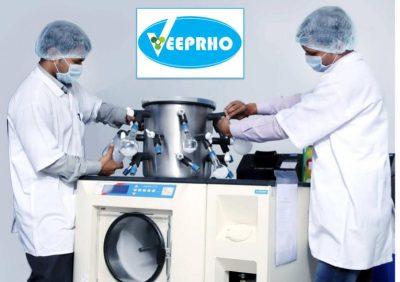Whenever you retrieve a prescription from a pharmacy, you’re placing your trust in the medication’s safety and efficacy. This trust is founded on stringent safety protocols, with impurity testing being a cornerstone of this process. Impurities in medications can originate from a variety of sources during their production, potentially compromising both their effectiveness and safety.
Understanding the critical role of impurity testing helps us appreciate the diligent processes that ensure our medications are not only effective but also safe for consumption. This detailed scrutiny is vital for maintaining the integrity and therapeutic efficacy of pharmaceutical products.
Key Concepts in Understanding Impurities in Pharmaceutical Manufacturing
To fully grasp the significance of impurities in pharmaceuticals, it’s essential to understand several key concepts:
- Definition of Impurities: Unwanted substances that emerge during drug manufacturing, potentially degrading both the quality and safety of medications.
- Sources of Impurities: These contaminants can originate from raw materials, byproducts of chemical reactions, or contamination during the production process.
- Impurity Testing Techniques: Advanced methods such as chromatography and mass spectrometry are employed to identify and measure these impurities accurately.
- Regulatory Standards: Regulatory agencies, including the FDA and ICH, establish guidelines that define acceptable impurity levels, ensuring drug safety.
- Safety Assurance: This encompasses the systematic testing and verification processes to confirm that impurity levels remain within safe, predetermined limits, thus safeguarding consumer health.
Exploring Impurities in Pharmaceutical Products
In the pharmaceutical world, impurities refer to unintended substances mixed into drugs, which are not part of the intended final product. These can be classified as organic compounds, inorganic elements, or residual solvents:
- Organic Impurities: These typically stem from raw materials or are byproducts of the manufacturing reactions, and may also form as the drug ages.
- Inorganic Impurities: Such impurities often include catalysts or metals introduced during the drug’s synthesis.
- Residual Solvents: These are leftover chemicals from the formulation process that ideally should be completely removed but may remain in minimal quantities.
The presence of these substances can influence the effectiveness, safety, and stability of pharmaceuticals, underscoring the necessity for stringent control measures.
Setting the Standard: Impurity Regulations and Drug Safety
Impurity standards are essential metrics that dictate the allowable impurity levels in pharmaceuticals, crucial for ensuring patient safety. These standards are methodically developed through rigorous scientific research and are enforced by regulatory bodies like the U.S. Food and Drug Administration (FDA) and the International Council for Harmonisation (ICH). They evaluate factors such as the toxicity of impurities, potential therapeutic benefits, and exposure levels.
The purposes of these standards are multifaceted:
- Protecting Health: They limit impurities to levels that prevent harmful effects.
- Ensuring Effectiveness: By controlling impurities, they help maintain the drug’s active ingredient’s efficacy.
- Guaranteeing Quality: These standards ensure that all drug batches meet consistent quality and performance criteria.
Ensuring Drug Safety from Laboratory to Dispensary
The transformation of a compound from a laboratory innovation to a pharmacy product involves rigorous steps to maintain safety:
- Initial and Detailed Testing: Every drug batch is initially screened and thoroughly analyzed to detect and quantify any impurities, with necessary adjustments made to refine drug purity.
- Approval Process: The compiled data on impurity levels undergo a stringent review by health authorities before the drug is approved for public use.
- Scale-Up and Quality Assurance: Manufacturing processes are intensified to large-scale production, maintaining impurity control, followed by meticulous packaging and widespread distribution.
- Role of Pharmacists and Healthcare Providers: Pharmacists perform essential quality checks before dispensing drugs, while healthcare providers assess the medication’s effectiveness and safety on patients, influencing future production standards.
In summary
For those fascinated by the intricate dance of medicine and science, the path a drug takes from conception to consumer is a testament to the pharmaceutical industry’s rigor and dedication. Through the essential practice of impurity testing, each medication is scrutinized under the most stringent standards, ensuring its safety and effectiveness.
Companies like Veeprho, pioneers in impurity analysis, are crucial in upholding these standards, ensuring that the treatments reaching patients are not only innovative but also impeccably safe. This process is a cornerstone in the ongoing quest to improve and protect global health through advanced medical practices.
